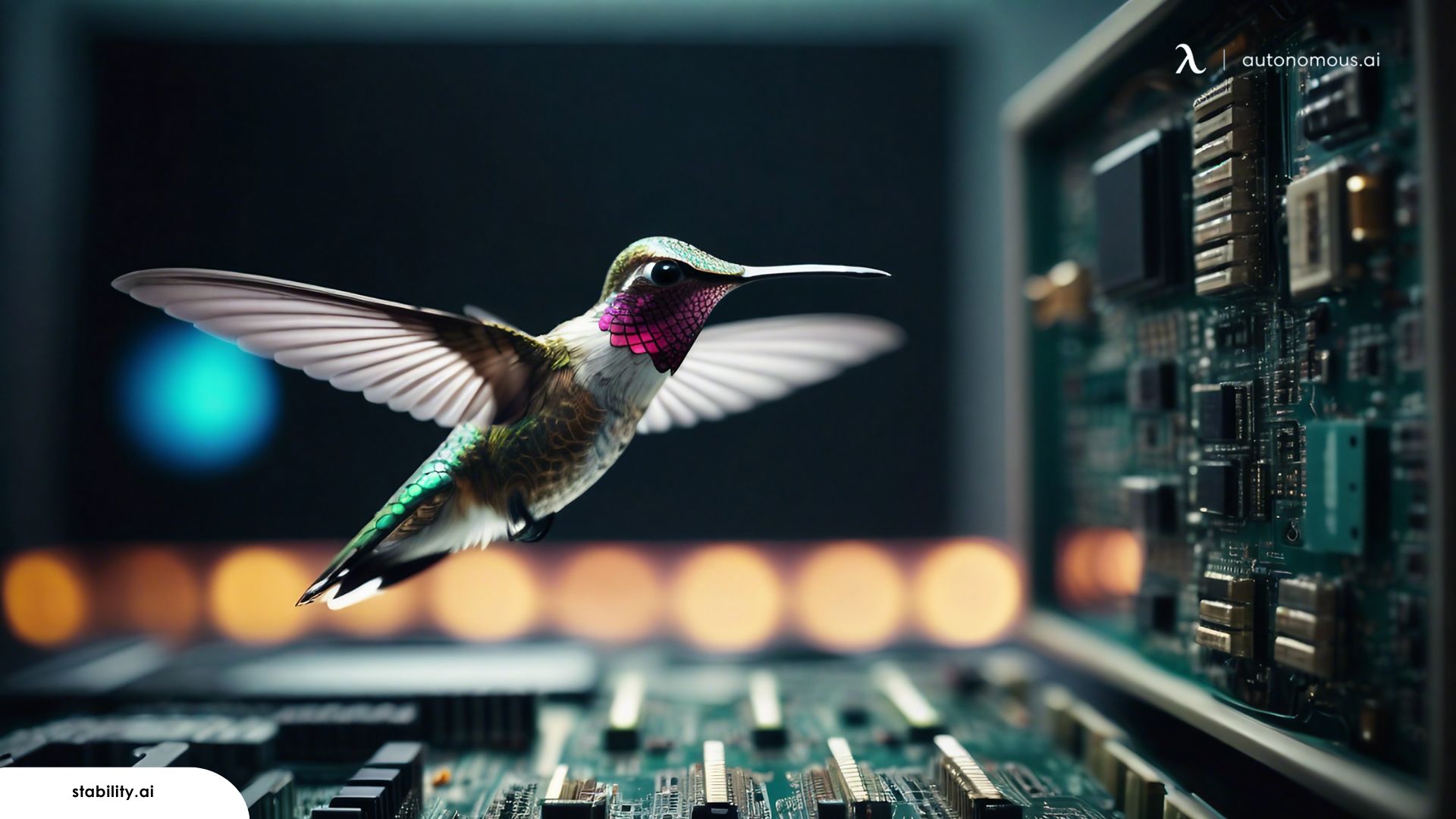
Table of Contents
In the ever-evolving landscape of artificial intelligence, the emergence of Stable Diffusion AI models has sparked a new era of innovation, particularly in the realms of image generation and creative design. This state-of-the-art technology seamlessly combines human creativity with machine learning, offering vast potential for industries such as digital art, content creation, and design. In this blog, we’ll explore the power of Stable Diffusion, its importance, how it works, and its practical applications in modern creative processes.
What is Stable Diffusion?
Stable Diffusion is a type of generative AI model designed to create high-quality images from textual descriptions. It leverages a stable diffusion model, which is a powerful tool that can generate complex visual outputs by breaking down an image creation process into small, iterative steps. Stable Diffusion works by gradually refining random noise into a coherent image that matches the input prompt, making it one of the most exciting advancements in the field of AI image generation.
What sets Stable Diffusion AI apart from other models is its ability to produce intricate, detailed visuals that are both high-resolution and creative, offering immense flexibility to artists, designers, and content creators alike. With Stable Diffusion, individuals can harness AI to bring their imaginations to life in ways previously thought impossible.
For those exploring the potential of AI-driven creativity, Stable Diffusion has quickly become one of the best AI tools to generate visually stunning artwork from simple text prompts.
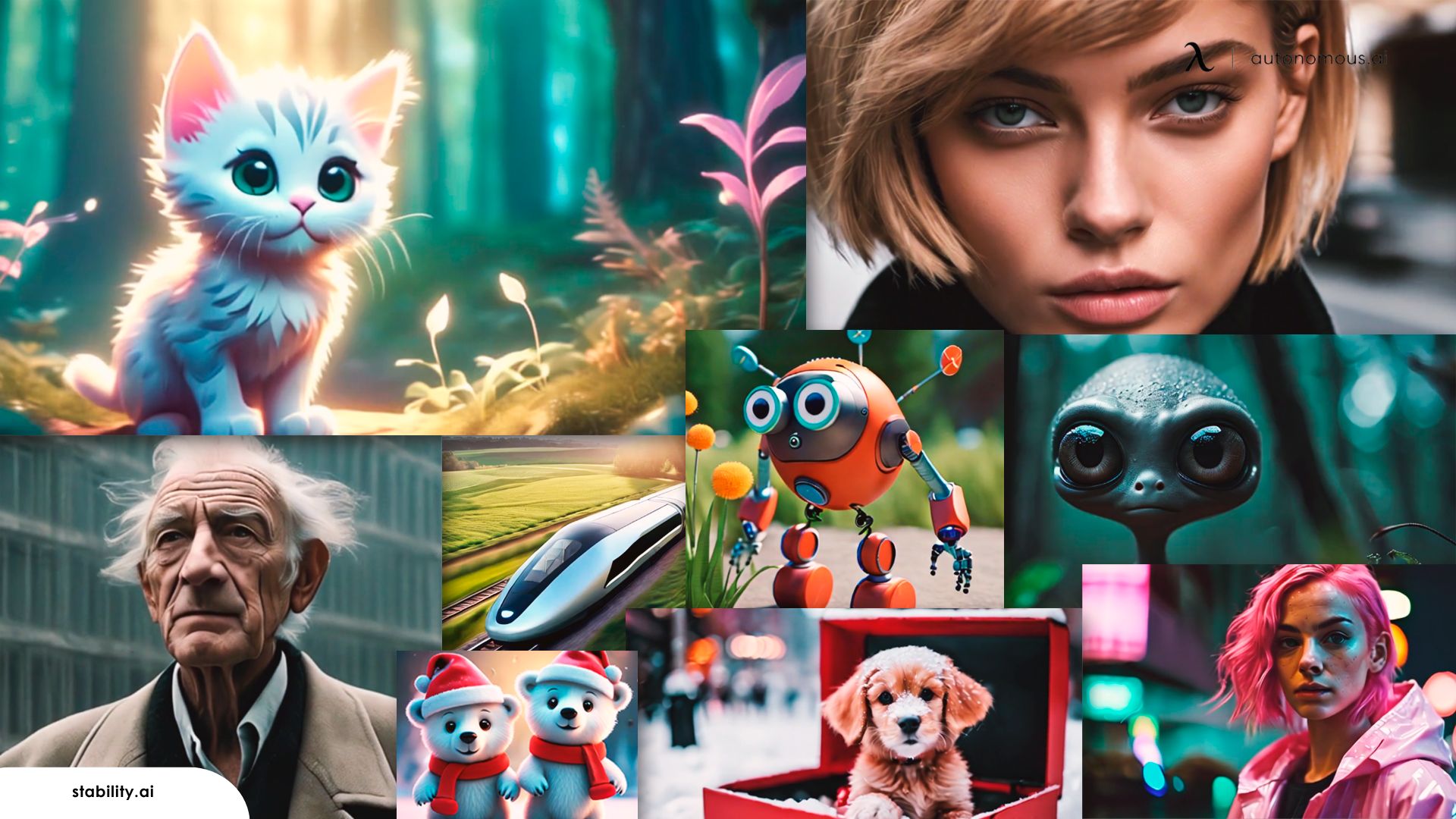
Why is Stable Diffusion Important?
The importance of Stable Diffusion lies in its ability to democratize creativity. By bridging the gap between AI capabilities and human artistic vision, Stable Diffusion allows individuals without formal design training to create professional-quality visuals. This AI model has brought new possibilities to various fields, including digital marketing, graphic design, and visual storytelling.
Moreover, Stable Diffusion AI models offer a much-needed solution to creative industries that are increasingly relying on fast-paced, automated content creation processes. As the demand for unique visuals grows, the scalability of AI-powered tools like Stable Diffusion becomes invaluable. Designers and businesses can now produce high-quality images in a fraction of the time it would take through traditional methods, giving them a significant competitive edge.
Additionally, Stable Diffusion is open-source, meaning that developers can access and improve upon the model. This fosters innovation and collaboration within the AI community, pushing the boundaries of what AI-generated art can achieve. For anyone looking to understand the role of AI in the workplace or creative industries, this model is paving the way for new business strategies.
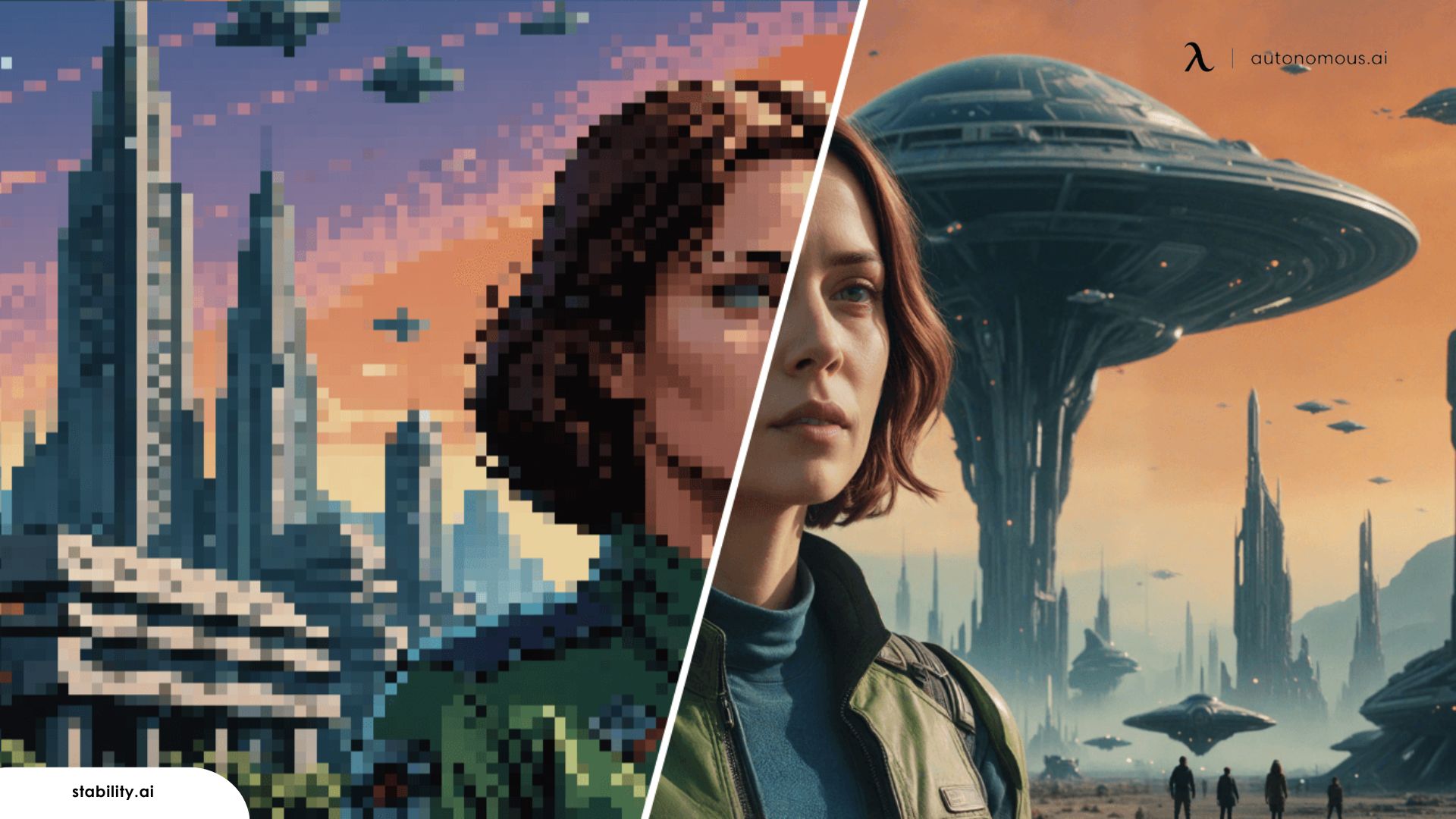
How Does Stable Diffusion Work?
At its core, Stable Diffusion works by reversing a process called diffusion, which in physics refers to the spreading of particles from areas of high concentration to areas of low concentration. In the context of AI, diffusion models begin with random noise and gradually refine that noise into meaningful, structured outputs such as images.
Stable Diffusion takes this a step further by integrating deep learning techniques to improve the model’s ability to generate coherent visuals. When given a prompt, the model first produces a noisy image (starting with random pixels) and iteratively “denoises” it, aligning the final image with the text description. This process is repeated over many iterations, each time improving the quality and relevance of the image.
The key to its functionality is the refinement of randomness, using advanced algorithms to produce stunning results from abstract, chaotic beginnings. Through this method, the model is able to generate high-resolution, intricate images based on simple textual prompts, giving users immense creative control.
For more insights on how AI-driven image generation works, you can check out resources like AI tools to generate images and learn practical tips for getting started.
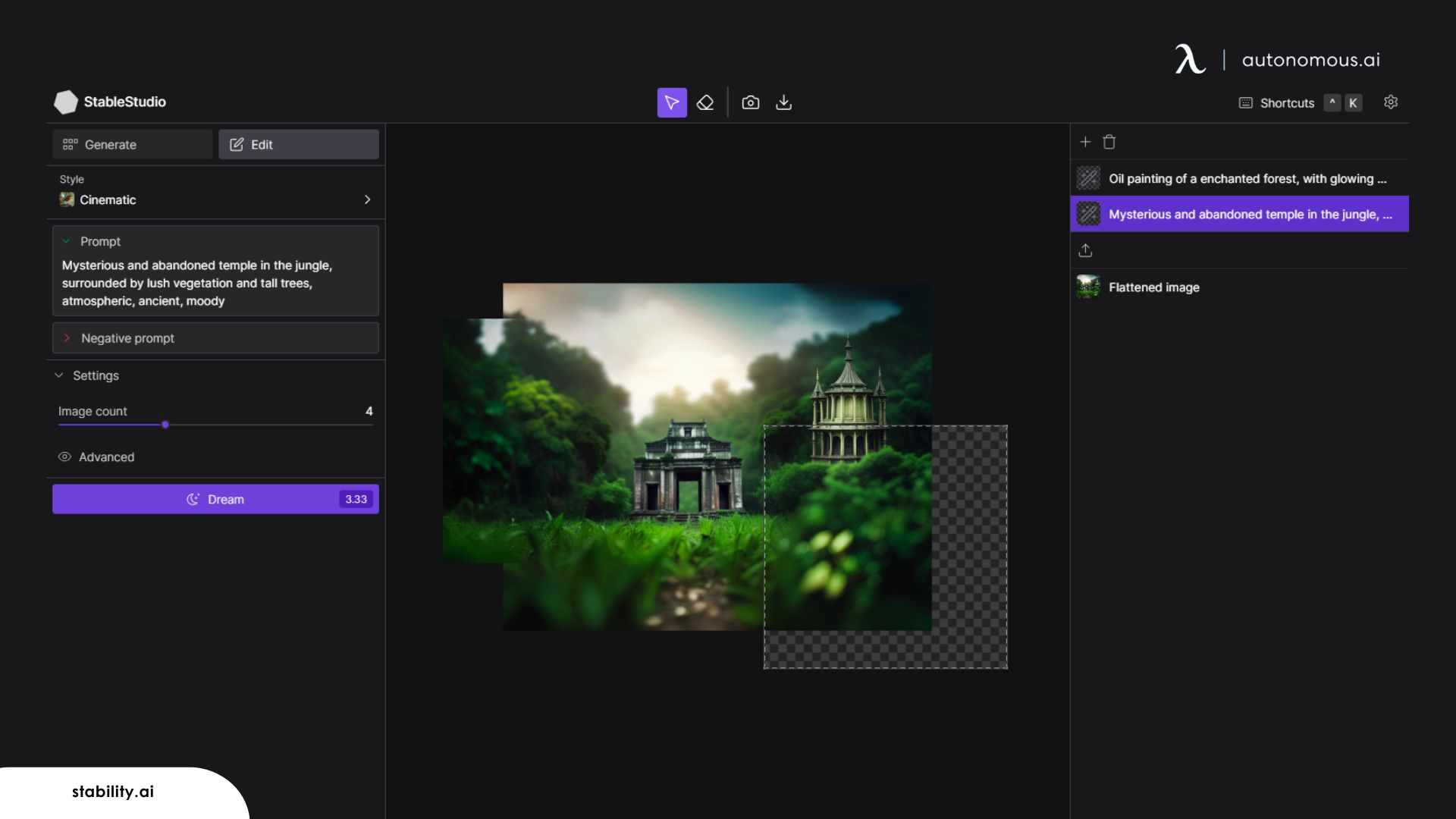
What Architecture Does Stable Diffusion Use?
Stable Diffusion is built on a U-Net architecture, a type of neural network commonly used for image segmentation and generation. The U-Net model is particularly well-suited for diffusion-based AI because of its ability to capture both high-level and low-level features in an image, allowing the model to reconstruct images from noisy data.
In addition to U-Net, Stable Diffusion uses an attention mechanism, which helps the model focus on relevant parts of the input prompt while generating an image. This attention mechanism allows for better alignment between the text prompt and the final output, ensuring that the images created accurately reflect the desired subject matter.
The model also incorporates variational autoencoders (VAEs), which help compress and reconstruct images during the generation process. VAEs play a critical role in reducing the complexity of the image generation task, making the process faster and more efficient. With these innovations in neural architecture, Stable Diffusion AI models offer unmatched precision and flexibility in image creation, giving users the ability to generate complex and highly specific visuals.

What Can Stable Diffusion Do? Practical Applications
Stable Diffusion is not just a theoretical model; it has numerous real-world applications that span industries. From digital marketing to entertainment, the practical uses of Stable Diffusion are vast and growing. Here are some of the key areas where this technology is making an impact:
Art and Design
Stable Diffusion has been widely adopted by artists and designers looking to create unique, AI-generated artwork. With this AI image generator, by inputting a textual description, users can generate intricate visuals that can be used for anything from digital paintings to graphic design projects. The accessibility of this technology allows even those with limited design experience to produce high-quality visuals.
Marketing and Branding
Businesses can leverage Stable Diffusion AI models to create marketing materials such as social media graphics, website visuals, and even product packaging designs. This not only speeds up the creative process but also ensures a consistent output of on-brand, visually compelling content. Companies looking for a competitive edge in branding can explore AI tools for logo design powered by Stable Diffusion technology.
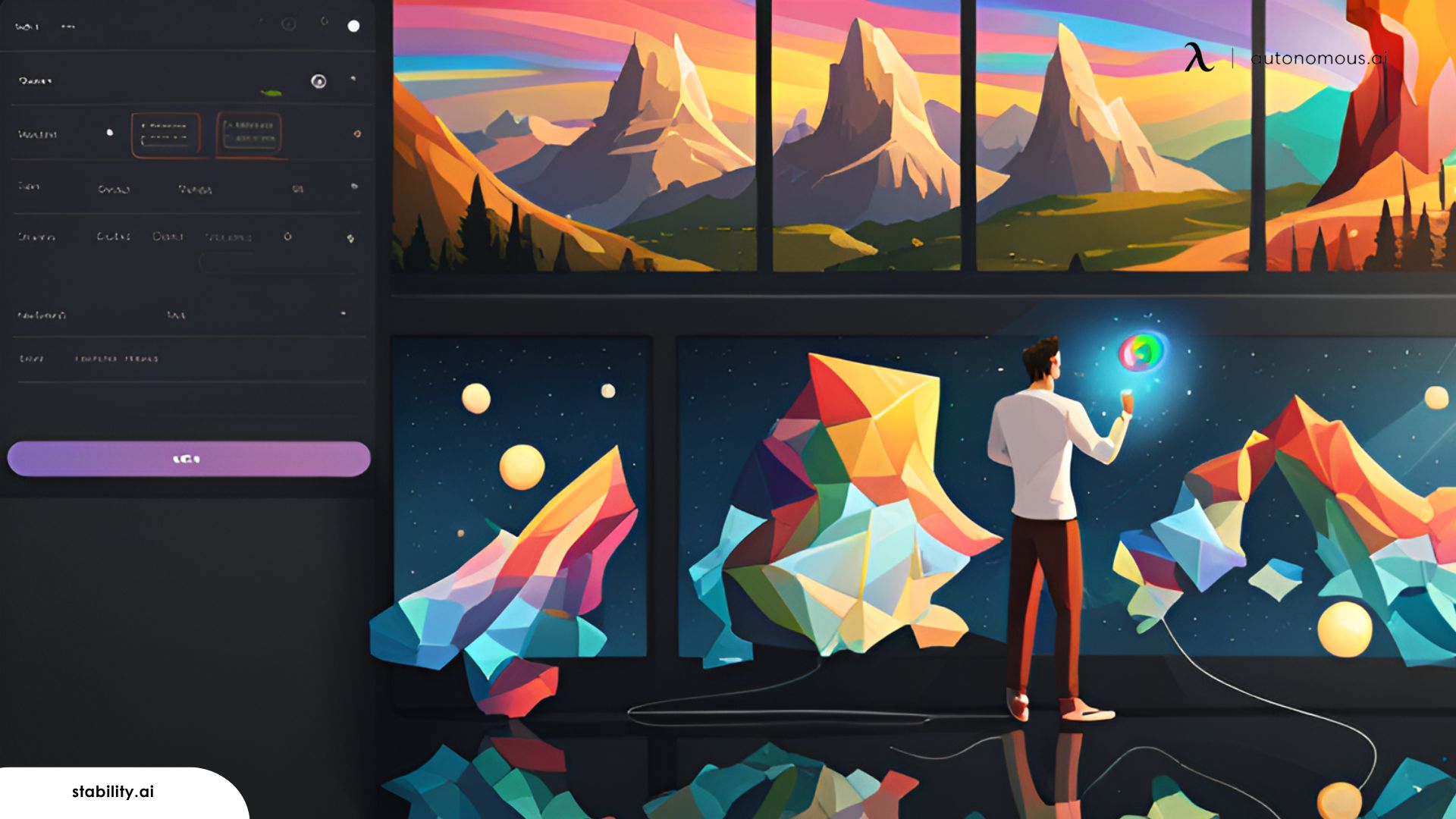
Content Creation
For content creators and social media influencers, Stable Diffusion provides an easy way to generate images that enhance storytelling. Whether it's creating visuals for blog posts, YouTube thumbnails, or Instagram stories, the model can produce highly engaging images that align with the creator's vision.
Film and Animation
Stable Diffusion is beginning to make waves in the film industry as well. Directors and animators can use the model to quickly prototype visuals, create concept art, and even generate backgrounds for animated scenes. The ability to create these elements with ease reduces the time and cost involved in pre-production, making Stable Diffusion an invaluable tool in visual storytelling.
AI Chatbots and Virtual Assistants
Companies incorporating AI into their customer service or online platforms can use Stable Diffusion to generate avatar images for virtual assistants or chatbots. By customizing visuals based on the AI's responses, businesses can offer a more personalized, human-like interaction for their users.
These practical applications illustrate the versatility of Stable Diffusion models in a variety of creative fields. As the technology continues to advance, its uses will only grow, helping industries streamline processes and enhance the quality of their visual content.
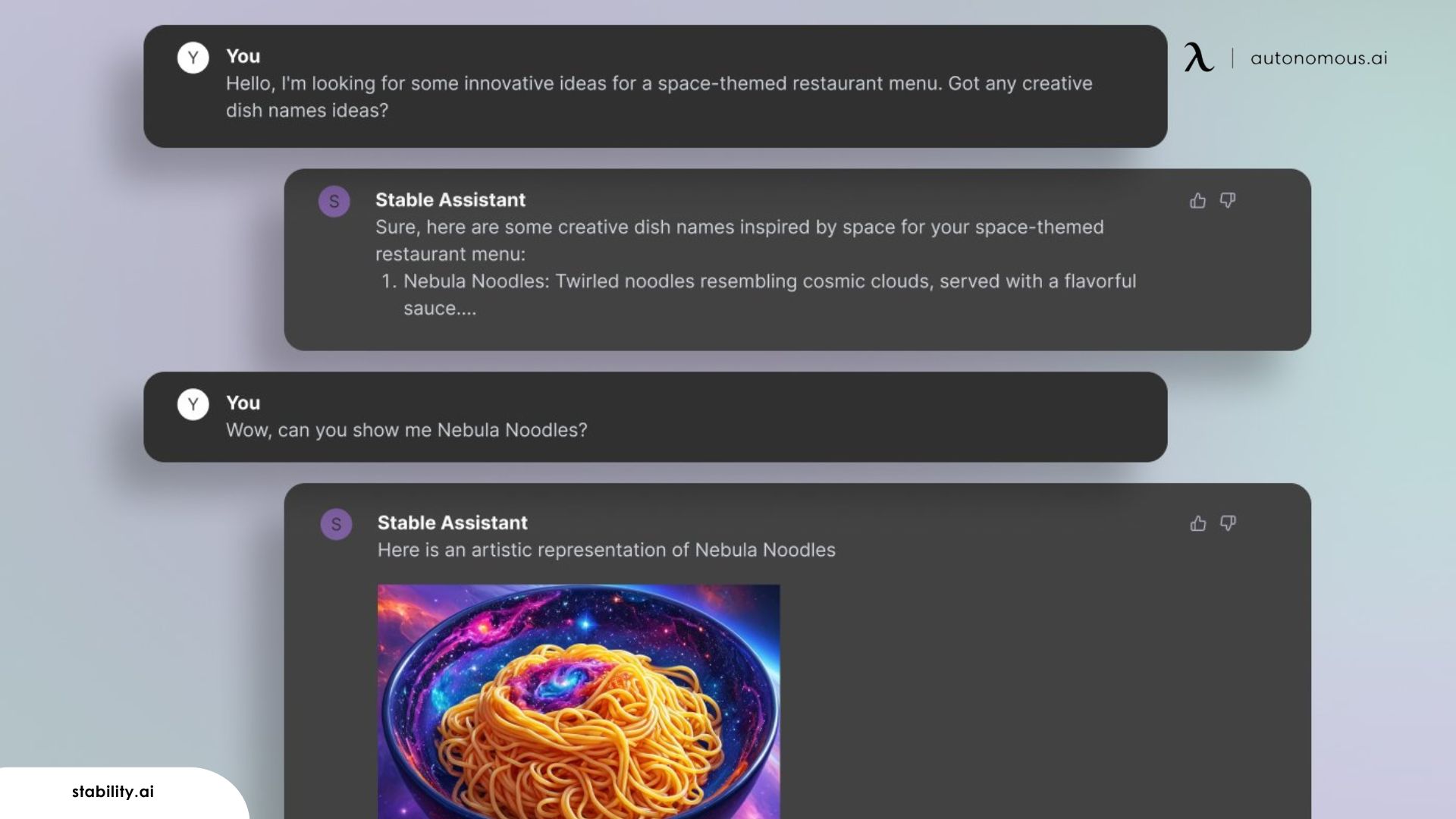
Stable Diffusion Models
Stable Diffusion operates within a family of models, each designed to offer specific functionalities and capabilities. The primary model is the general-purpose Stable Diffusion AI, which is used for most image generation tasks. However, there are also specialized versions of the model that cater to more niche applications.
For example, some Stable Diffusion models are optimized for generating high-resolution images suitable for print or detailed digital artwork. These models use advanced denoising algorithms and higher parameter counts to ensure that the output is both sharp and accurate, even at larger scales.
Additionally, there are models designed for text-to-image translation, which are tailored to generate images based on highly specific or complex textual descriptions. These models excel in producing creative and diverse outputs, making them ideal for experimental artists or businesses looking to create standout visuals.
As the development of Stable Diffusion continues, we can expect even more specialized models to emerge, each offering unique capabilities that enhance creativity and productivity in various industries.
To further explore how AI is shaping modern business and creative processes, be sure to check out business tech trends and learn about the latest advancements in AI.
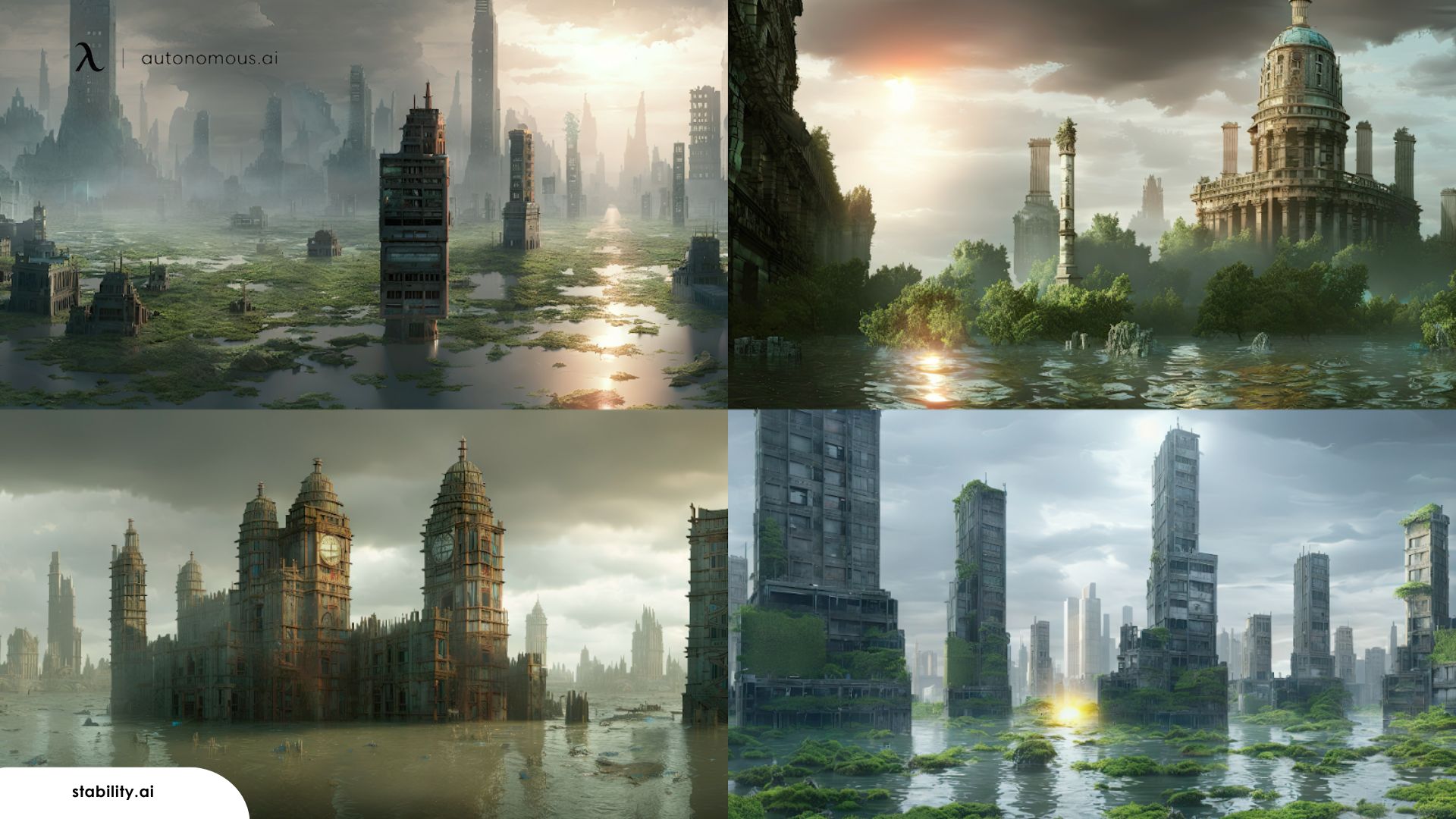
Conclusion
Stable Diffusion represents the future of AI-powered creativity, blending cutting-edge technology with the limitless potential of human imagination. Its ability to produce high-quality, intricate visuals from simple text prompts has revolutionized how we approach content creation, design, and digital art.
As Stable Diffusion AI models continue to evolve, they will unlock new possibilities for industries looking to streamline processes and enhance their visual outputs. Whether you are an artist, a business owner, or a developer, embracing the power of Stable Diffusion can transform the way you approach creativity.
As you continue exploring the potential of AI and its role in shaping industries, Stable Diffusion stands as a powerful testament to how technology can amplify human creativity.
Stay connected with us!
Subscribe to our weekly updates to stay in the loop about our latest innovations and community news!
Spread the word


/https://storage.googleapis.com/s3-autonomous-upgrade-3/production/ecm/230914/bulk-order-sep-2023-720x1200-CTA-min.jpg)

/https://storage.googleapis.com/s3-autonomous-upgrade-3/production/ecm/230922/DanielAnderson.jpg)